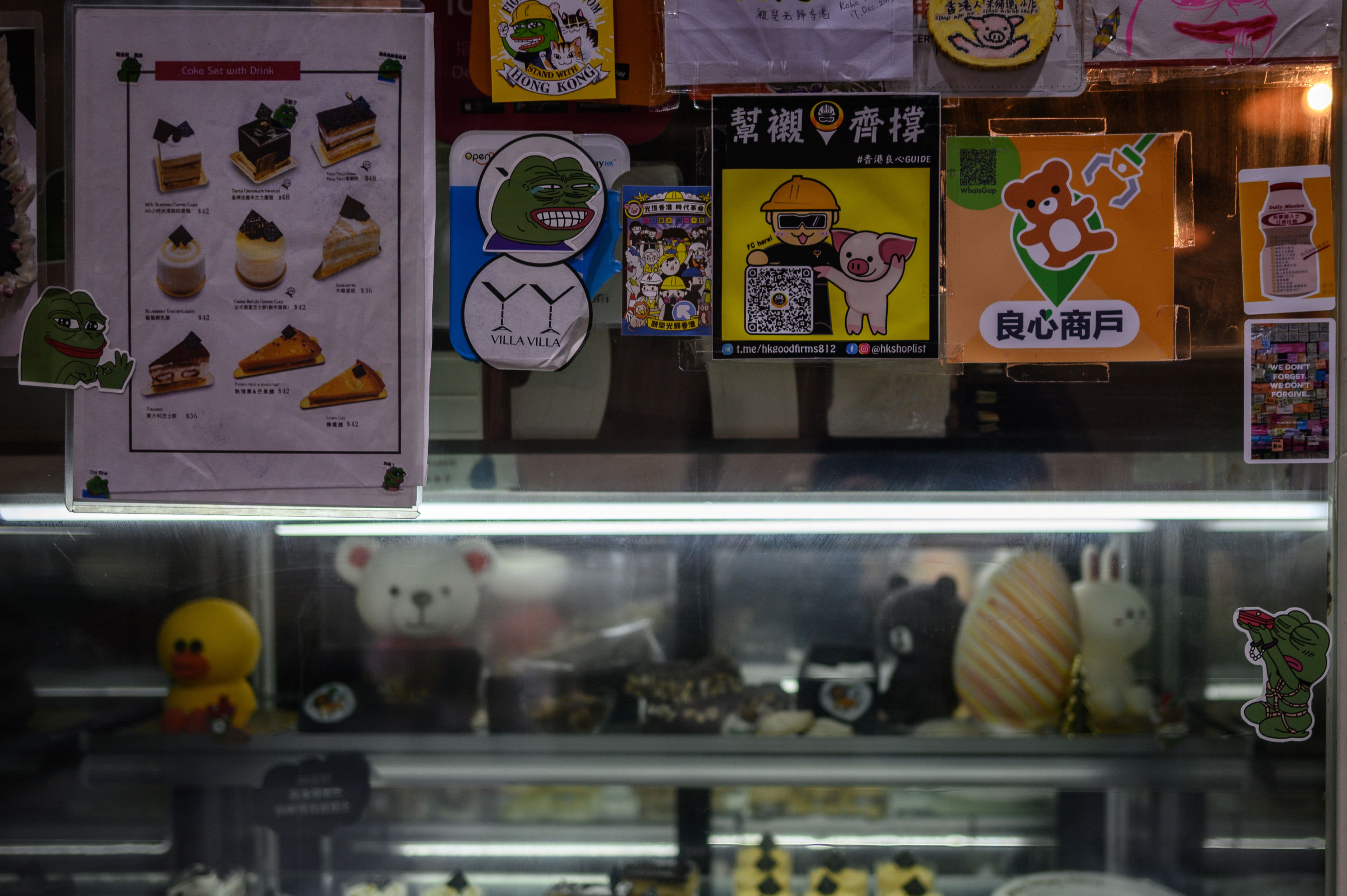The latest division in Hong Kong isn’t driven by posters and protests — it’s driven by consumers’ wallets as people vote with their money.
The city’s economy shrank in the second and third quarter of 2019, marking a technical recession and the first time in a decade its economy weakened for two consecutive quarters. The government forecasts the economy will contract by 1.3% in 2019 as the Asian financial hub braces for its first budget deficit in 15 years.
While most businesses want to stay out of politics, many have faced declining sales — partially as a result of a 40% decline in visitor numbers in the second half of 2019.
Yet, phone apps have popped up showing maps of businesses believed to be supporting the protests, as well as those that are not. The grass roots movement distinguishes businesses as yellow if they are vocal about the demonstrations, or assumed to be promoting the pro-democracy protests. Blue, on the other hand, is used for businesses perceived to be either against the protesters and/or are backing the government and police.
One Instagram account, for instance, has amassed more than 190,000 followers since its launch in September and shows and promotes, so-called “yellow businesses” that support the protests.
CNBC visited several businesses, including Lung Moon Restaurant in Hong Kong’s Causeway Bay district, which has a sign on its window declaring: Stand with Hong Kong.
Hong Kong’s pro-democracy protesters are building a ‘yellow’ economy, by profiling businesses that support their cause.
Getty Images
Those who scan a QR code on a sticker on the window will be directed to a Google Map, which reveals yellow and blue businesses around the city.
One customer outside the restaurant said everyone inside is likely conscious of the business’ stand on the protests and for him, it’s one of the reasons he chose to eat there. “It’s my freedom right? It’s my freedom on how to spend my money,” he said.
Meanwhile, inside ACO Books — another so-called yellow business — artwork and paintings depicting the protesters are featured.
“I heard some pros and cons of this so-called yellow economic circle, but then I see it in a more positive way as people gain more solidarity through economic ways,” said Lin On Yeung, a curator of the store.
Yet, despite being on the so-called yellow side, he said he did not particularly like that the society was so polarized. “We want to be unified in the end,” he said. “We are not aiming to segregate people.”
Politics aside, most businesses have taken hits to their sales as a result of a slowing economy and fewer tourists.
Chow Tai Fook, one of the world’s largest jewelry retailers, announced it would be closing a number of its stores in Hong Kong, while luxury brands Prada and Louis Vuitton are closing at least one location as a result of declining sales.
David McEwan, the owner of Bobby’s Rabble, a bar in Hong Kong’s central district, said that protests during the week have slowed business down. “Roadblocks, more police presence, so people tend to go home after work these days, instead of going out for drinks and dinners. It’s been frustrating.”
